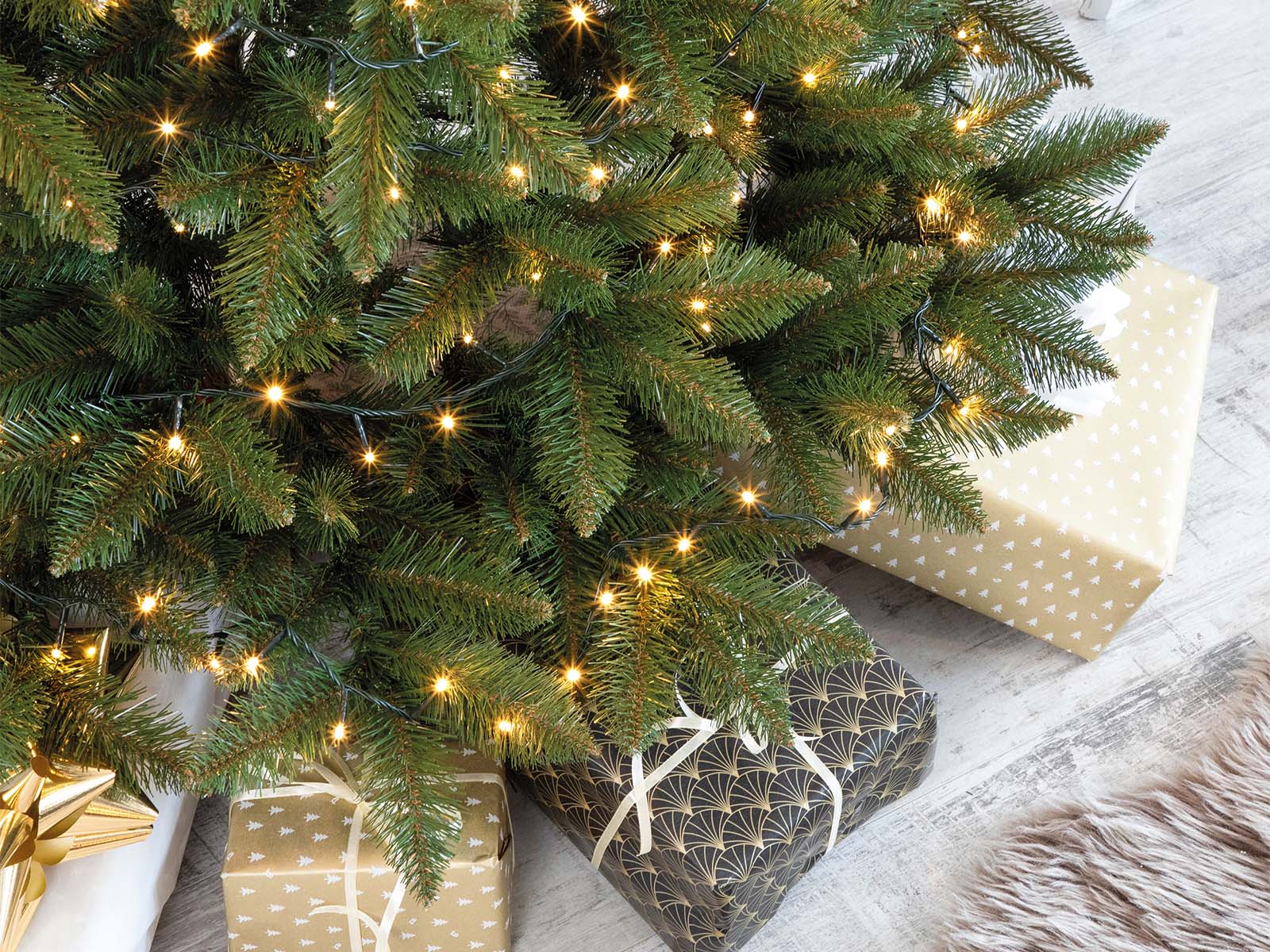Artificial Christmas trees for allergy sufferers: are they safe?

Holiday preparations can be full of joy, but for people sensitive to dust, mites, or chemicals, choosing a Christmas tree may raise concerns. Is an artificial tree safe? Surprisingly, this is a common question. Fortunately, modern artificial Christmas trees can be not only beautiful but also health-friendly - if you choose the right model and follow a few simple rules.
- Artificial Christmas trees offer more than just aesthetics and convenience. They also address the needs of individuals struggling with allergies.
- By selecting the right tree model for allergy sufferers, you can enjoy the holidays with no worries.
- Regular maintenance of the artificial tree is crucial. Dust and other allergens can accumulate on it, so opt for models that are easy to assemble and disassemble – making cleaning as simple as possible!
Allergy sufferers often need to limit their everyday choices to avoid triggering allergic reactions. During the holiday season, when Christmas trees appear in homes, this issue becomes even more pressing. Live trees can harbor substances that cause sneezing, coughing, conjunctivitis, or even breathing difficulties. Could artificial trees, as an alternative to real ones, be free from such risks? Let’s find out!
Table of Contents:
What risks do Christmas trees pose for allergy sufferers?
Before delving into the details of artificial Christmas trees, it’s essential to understand the factors that might trigger allergic reactions. These are often linked to:
- house dust mites,
- mold,
- chemical pollutants,
- scented substances.
Traditional trees, such as Nordmann firs, can cause allergies in people sensitive to airborne allergens. Mold brought into the house with live trees is also a risk for allergy sufferers. Studies show that mold present on Christmas trees can lead to allergic symptoms, including watery eyes.
The good news is that artificial Christmas trees, especially high-quality ones, can minimize the risks associated with most of these factors.
What are artificial Christmas trees made of?
The safety of artificial Christmas trees for allergy sufferers begins with the materials they are made from. Most modern models consist of PVC (polyvinyl chloride) or polyethylene (PE) – synthetic materials that are not allergens themselves (read more about the materials used in Christmas trees).
How to maintain an artificial Christmas tree to make it allergy-friendly?
An artificial tree itself is not a source of allergens – improper care can lead to dust and mite accumulation, causing allergic reactions. Here are some tips to keep your tree as safe as possible for allergy sufferers:
1. Regular cleaning
Before each holiday season, thoroughly clean your artificial tree. The best method is to use a dry microfiber cloth or a soft brush to remove dust and debris. Avoid strong detergents, as they may irritate the skin or respiratory system. For allergy sufferers, regular vacuuming and airing out rooms are also recommended.
2. Storing in proper conditions
After the holiday season, store your tree in a tightly sealed container, such as its original box. This will protect it from dust, mold, and moisture.
3. Avoiding decorations made of allergenic materials
Not just the tree but also decorations can be sources of allergens. If you have allergy sufferers at home, choose decorations made of plastic, glass, or metal. Dried fruits, for example, may encourage mold growth. This is particularly important if you have small children or pets in the house.
Artificial Christmas trees and chemical odors or essential oils
Modern artificial Christmas trees, especially high-quality models like those from FairyTrees, are designed to be as neutral as possible for users – especially when it comes to odors. However, if you notice a faint smell after unpacking a new tree, it’s simply the result of being sealed during transport and storage. The solution is simple: air the tree out in a well-ventilated room before use.
From the perspective of allergy sufferers and those sensitive to scents, avoid using additional scented sprays or artificial fragrances. This will help prevent irritation of the respiratory system.
Artificial Christmas trees – a good choice for allergy sufferers
When chosen and maintained properly, artificial Christmas trees can be an excellent choice for allergy sufferers. Crucially, artificial trees do not contain resin or other natural substances that might trigger allergic reactions in sensitive individuals. In the context of Christmas traditions, artificial trees can help reduce the risk of allergic symptoms.
Remember to take care of your tree regularly, store it under the right conditions, and enjoy a beautiful holiday atmosphere without health concerns. FairyTrees models are safe, easy to clean, and long-lasting – a convenient solution for years to come!
